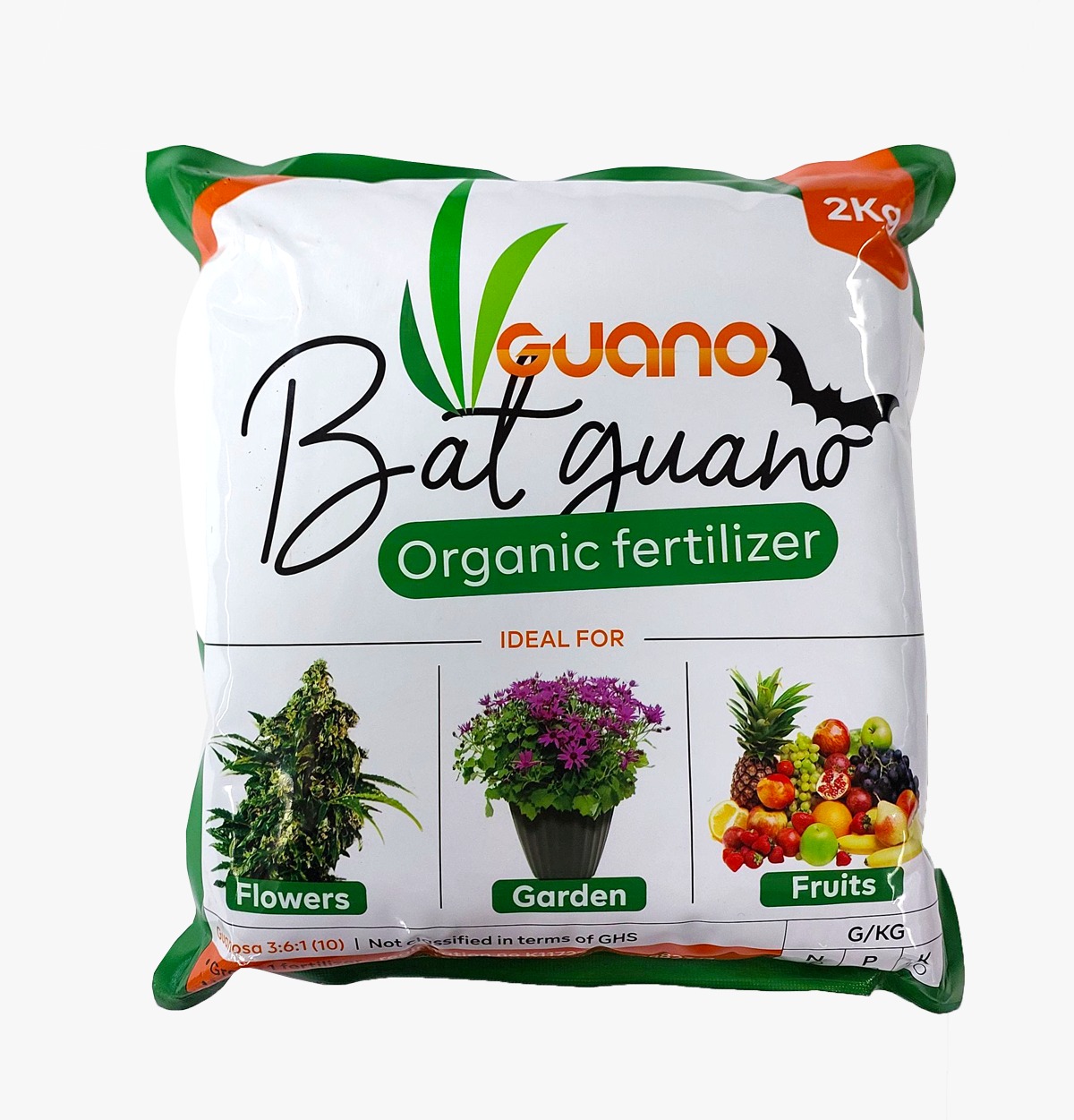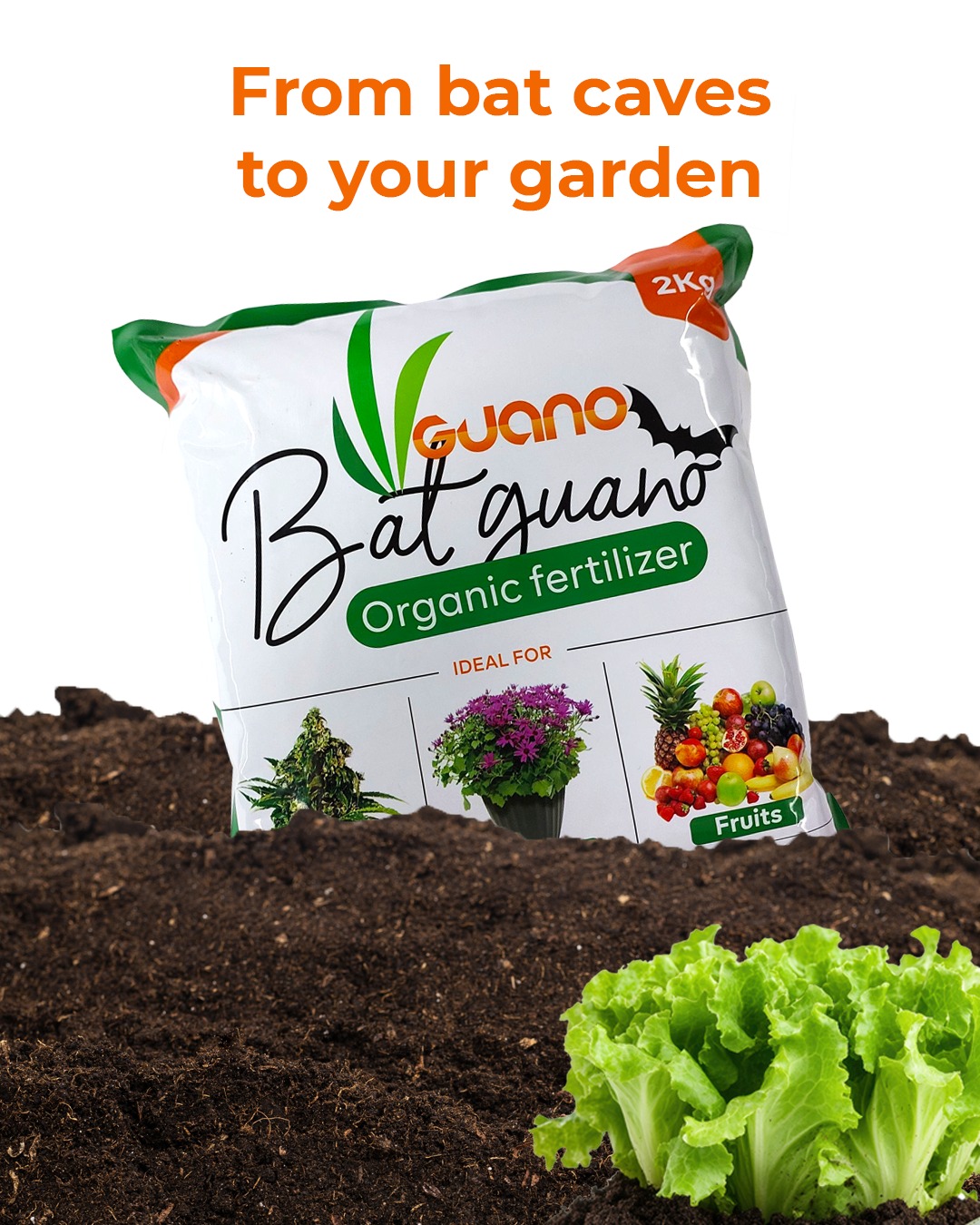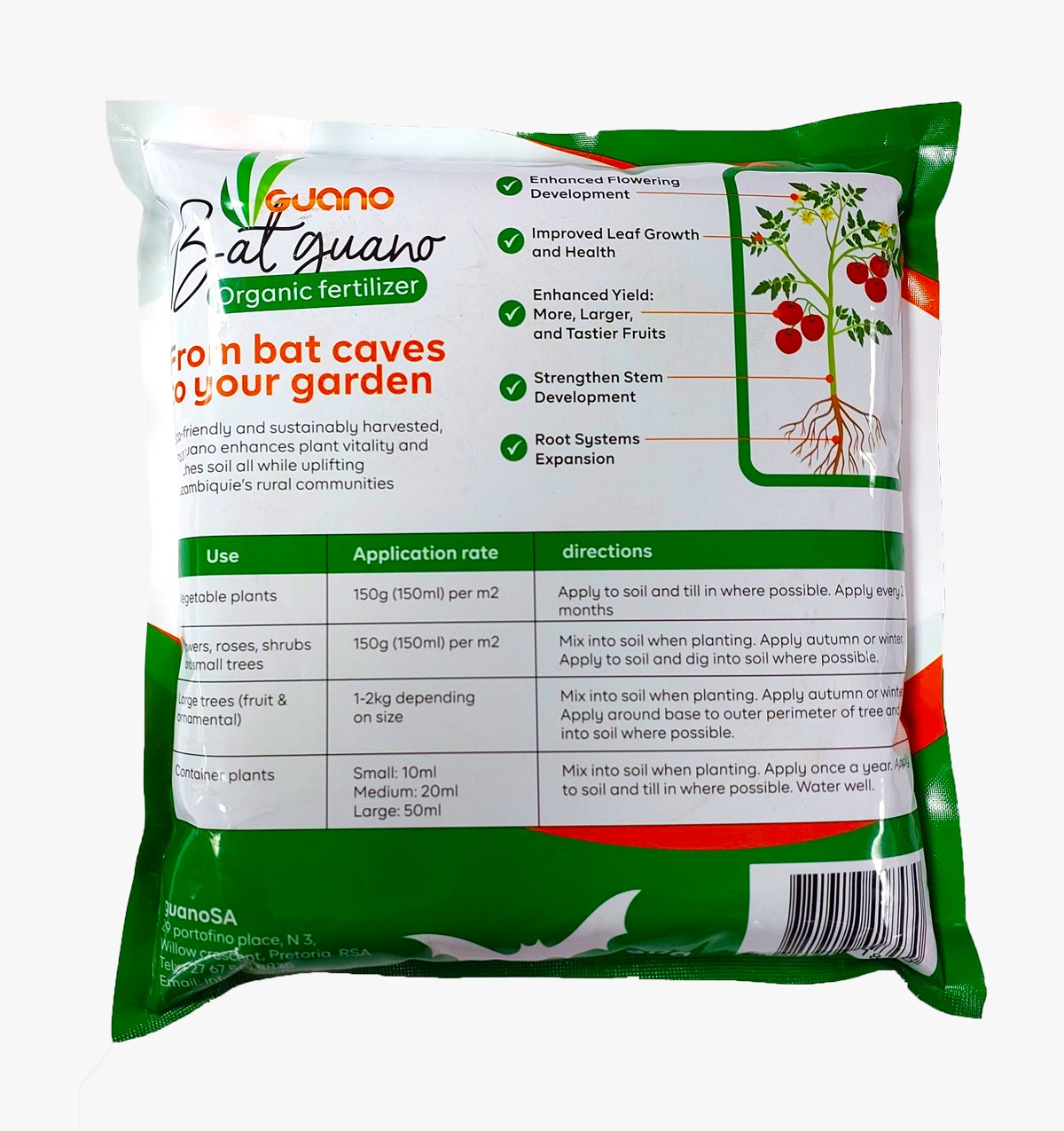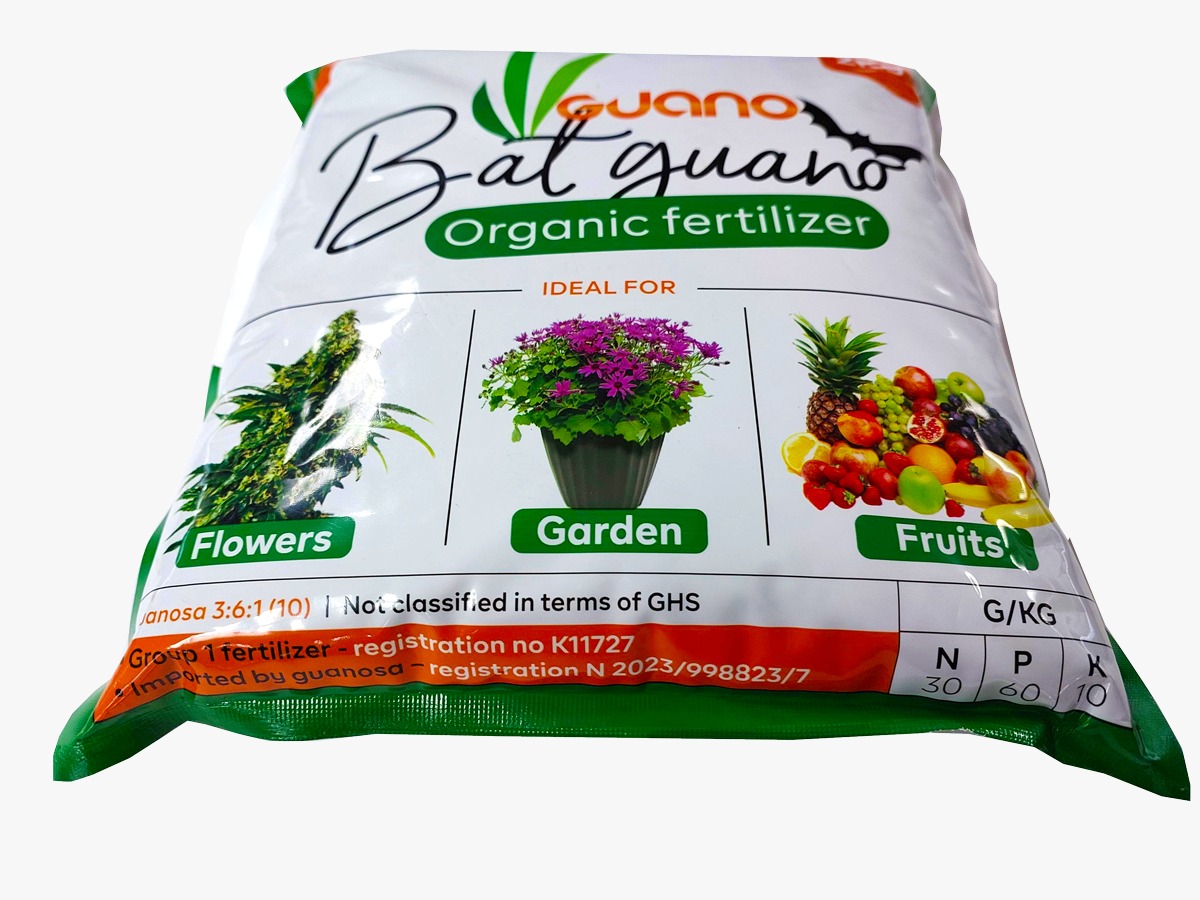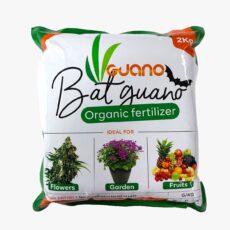Description
Product Overview
Bat Guano Organic Fertilizer – 2Kg Bag
Bat Guano Organic Fertilizer is a premium, 100% natural soil enhancer made from bat droppings harvested by hand in the remote caves of Mozambique. The guano is sun-dried, manually sifted, and packaged with zero chemical additives — just pure, nutrient-rich material as nature intended.
Every purchase supports local Mozambican communities through ethical sourcing and sustainable employment initiatives.
Key Benefits
Nutrient-Dense Formula: Rich in essential macronutrients — Nitrogen (N), Phosphorus (P), and Potassium (K) — to promote healthy, vigorous plant growth.
-
Soil Enrichment: Enhances soil structure, microbial activity, and moisture retention.
-
Boosts Growth: Stimulates root development, flowering, and fruit production.
-
Sustainable Performance: Slow-release nutrients reduce leaching and minimize environmental impact.
Certified Organic:
-
Registered as Group 1 Organic Fertilizer
-
Reg. No.: K11727 (South Africa)
Typical Composition
| Nutrient | Range |
|---|---|
| Nitrogen (N) | 3% |
| Phosphorus (P) | 6% |
| Potassium (K) | 1% |
| Calcium (Ca) | 10% – 30% |
| Magnesium (Mg) | 0.5% – 1% |
| Organic Matter | 60% – 80% |
| pH | 6.5 – 8.0 |
Application Guide
-
Vegetables & Flowers:
Apply 150g per m². Work into the topsoil and water thoroughly. Reapply every 2 months. -
Container Plants:
Mix 10–50ml directly into the soil, depending on pot size. -
Trees & Shrubs:
Use 1–2kg per plant around the base. Incorporate into the top 10cm of soil.
Product Details
-
Packaging: 2Kg Bag
-
Shelf Life: 6–12 months (when stored in a cool, dry environment)
-
Storage Instructions: Reseal after use and store away from direct sunlight.
Proven Results
Official agronomic trials in Mozambique have demonstrated significant improvements in root development, flowering, leaf quality, and overall crop yield. Bat Guano outperformed synthetic fertilizers in both productivity and cost-effectiveness.
Source: Institute of Agrarian Investigation of Mozambique (IIAM) & Eduardo Mondlane University, Agronomy Department (2021).

